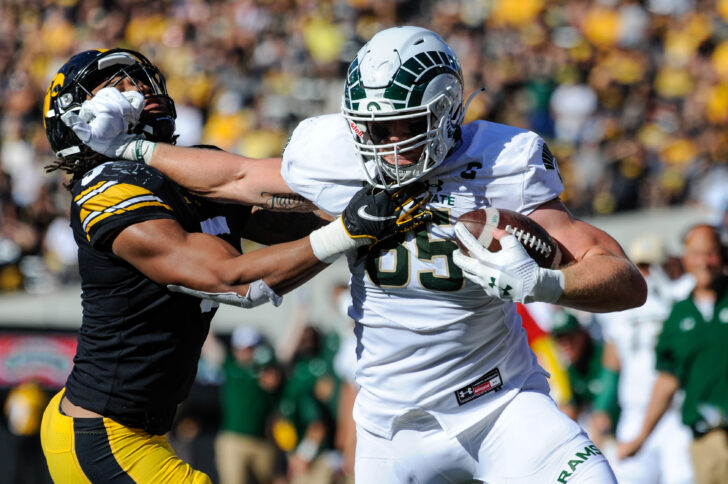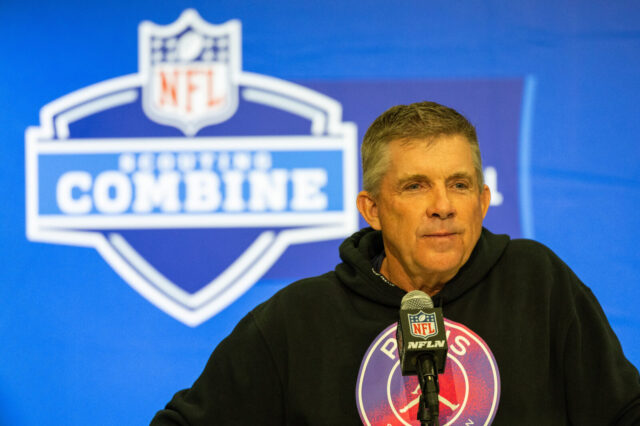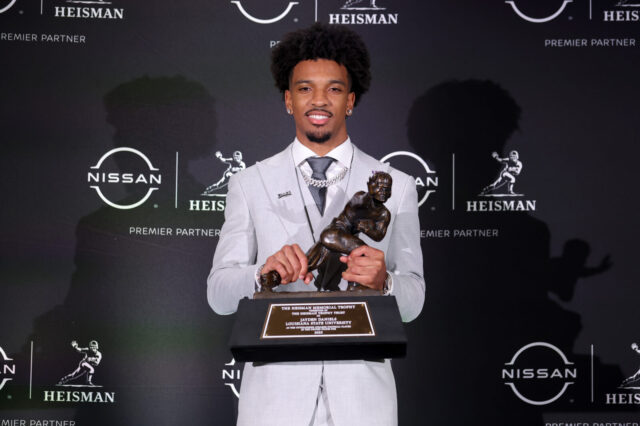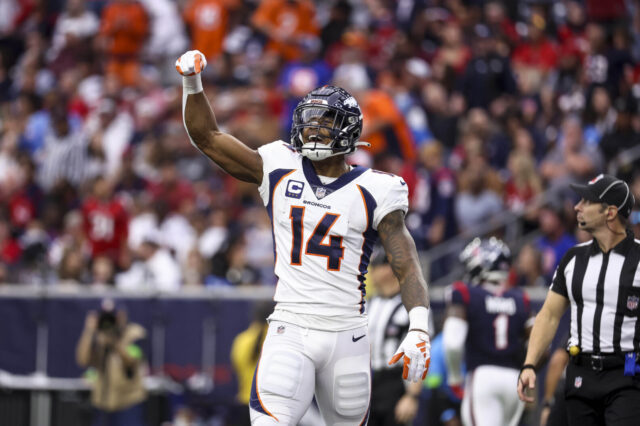Landing Russell Wilson in a historic trade was easily well worth the cost, but that doesn’t change the fact that the Denver Broncos opened up a sizable hole in their tight end room by shipping former first-round pick Noah Fant to Seattle.
Not only that, but they currently lack talented tight ends that can be assets in every phase of new head coach Nathaniel Hackett’s offensive scheme.
Albert Okwuegbunam is a very exciting pass-catcher, but he has serious limitations as a blocker and those limitations might be exacerbated by the scheme change. There are also legitimate injury concerns with Okwuegbunam that must continue to be weighed.
Eric Tomlinson is a very talented blocker, but in the last three seasons, he has a measly eight yards on just two receptions. Andrew Beck and Shaun Beyer round out the roster, and while their skill sets are more diverse than Tomlinson or Okwuegbunam, they shouldn’t be expected to do more than be quality rotational pieces.
The Denver Broncos need to find a true No. 1 that can play all three downs in Hackett’s offense and local star Trey McBride might just be the man for the job.
Positives
With the Broncos’ scheme in mind, Trey McBride appears to be a consensus pick as the top tight end in the draft class, and with good reason.
McBride thrives both as a blocker and a pass-catcher for Colorado State and it’s extremely difficult to find many areas of serious concern in his game with how versatile his talents are.
OK he can block, I'm not gonna post anymore blocking snaps cause I'm already convinced pic.twitter.com/t5AHLq4CAr
— Joel Chandler (@BengalScoutJoel) April 6, 2022
He enjoys blocking from the tight end position, demonstrated by him consistently seeking out contact and battling through the whistle. He’s not a road-grating people-mover or a steadfast pass-protector, but he’s effective across the board. He also has the ability to get a lot better if he adds some more functional strength and polishes his technique, thanks to his passion for that facet of the position.
His blocking talents check that box for the Broncos, but the more impressive aspect of McBride’s game is what he brings as a pass-catcher.
A little Trey McBride for #DraftTwitter pic.twitter.com/PHMOKNgXaV
— Brent Rollins (@BrentRollinsPhD) April 1, 2022
McBride is a natural catcher of the football and has the strong hands to pluck the ball out of the air even when he’s in traffic or battling through contact at the catch point. Those hands paired with superior body control for a tight end of his build help him extend outside his frame to regularly haul in difficult receptions.
This TE class isn’t the best but Trey McBride is the best of the bunch by far. Reminds me of a little of Hunter Henry pic.twitter.com/IfoNZWfoB0
— Jay (@RedskinsCult) April 3, 2022
There’s room for growth in his route-running, which we’ll discuss briefly, but he also flashes a high football IQ with his understanding of how to manipulate leverage in man coverage and shows excellent awareness of where the soft spots of defense are in zone coverage.
Out wide or inline is releases are so good. Just too quick and strong, into his route immediately pic.twitter.com/8hehpQptzX
— Joel Chandler (@BengalScoutJoel) April 7, 2022
He also causes damage after the catch with a bruising running style that managed to create big plays for the Rams’ offense. That ability might be less effective against NFL athletes, but he should still be able to create opportunities with the ball in his hands.
His character is also impressive. Despite being the biggest star on the Rams he had no problem doing the dirty work and would even line up at fullback to help the offense succeed, which also highlights his versatility. He should have no problem contributing on special teams if that’s what Denver needs from him.
Negatives
There are very few holes in McBride’s game, but there are some things he will have to refine to maximize his potential at the next level.
For starters, his route running is fairly unremarkable and he struggles to create adequate separation on his breaks, making his life harder as a receiver. He’s also relatively slow off the line of scrimmage, limiting his ability to threaten the defense vertically. Also, despite his skill set that would suggest being a solid redzone target, his redzone production was underwhelming with the Rams.
In 2021, McBride had just one receiving touchdown, which is concerning considering how he dominated CSU’s target share otherwise. He had more receptions and only 135 fewer yards than the combined totals of the Rams’ second-, third-, and fourth-leading receivers. Yet, those three lesser targets finished the season with eight more touchdowns than McBride.
McBride’s redzone production was much better his other seasons in Fort Collins, so it’s not overly concerning, but it’s definitely curious.
Lastly, while he has almost all the traits to suggest he would be a good blocker in Nathaniel Hackett’s offensive scheme, his experience with wide-zone concepts is fairly limited, so he might need more time to develop that part of his game than anticipated. Adding some more play strength to his game would also be huge.
Verdict
McBride deserves to be the No. 1 tight end in this class for the Denver Broncos considering his diverse skillset, red-hot motor, and exciting football IQ.
The holes that exist in McBride’s game are problematic, but they’re also nothing that isn’t fixable, in theory.
The biggest debate with McBride will be, ‘is he worth the No. 64 pick when the Broncos might be able to get a very comparable option later on?’ There are plenty of other needs on this roster, Wilson is known for underutilizing the tight end position, and tight ends historically take a while to transition to the NFL.
There’s a strong argument to be made that Denver would be better served by using that pick on a player who’s more likely to make a large impact in year one, at a greater position of need.
Ultimately though, with their first pick in the draft coming so late, the Broncos should be focused on adding quality players and McBride could easily be the best player available when Denver is on the clock.



